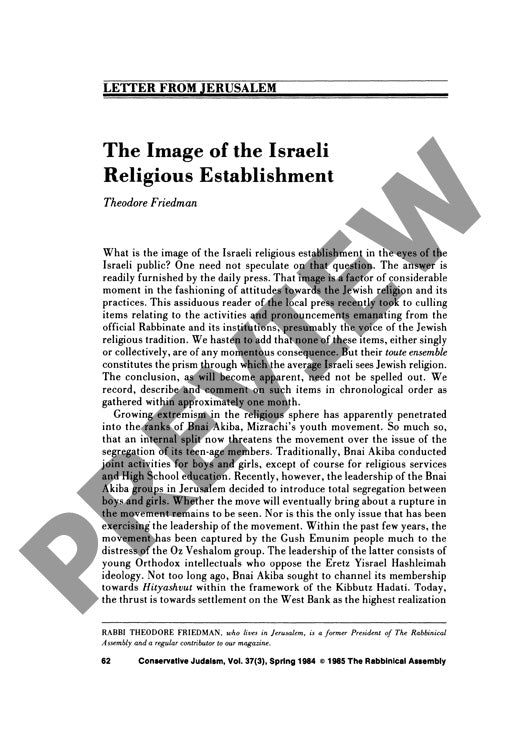The Image of the Israeli Religious Estab
Couldn't load pickup availability
Religious extremism and bureaucratic overreach are rapidly eroding Israeli public trust in Jewish religious institutions. Through systematic analysis of media coverage spanning one month, several concerning trends emerged in how religious authorities are reshaping Jewish practice in Israel. The research documented the increasing radicalization of religious youth movements, particularly as Gush Emunim ideology captured Bnai Akiva, implementing strict gender segregation policies. Contradictory halakhic rulings between rabbinical authorities - such as conflicting decisions on state lottery participation - have further undermined institutional credibility. Direct challenges to the religious-secular status quo manifested in confrontations over Sabbath observance in Petah Tikvah, while proposed legislation sought to dramatically expand Rabbinical Court powers through secret proceedings and eliminated appeals. The controversial Theresa Angelovici case, involving the exhumation of a non-Jewish woman's remains, exemplifies how religious authorities increasingly adopt extreme positions despite questionable halakhic foundations. These collective incidents portray Jewish religious practice as medieval and extremist, potentially alienating broader Israeli society and undermining the perceived legitimacy of religious institutions. Press reports concerning activities and pronouncements from the official Rabbinate and affiliated institutions reveal a growing disconnect between religious authority and public sentiment in contemporary Israel.

More Information
-
Physical Description
-
Publication Information
Published 1984
ISBN
-
Publication Credits
Theodore Friedman

